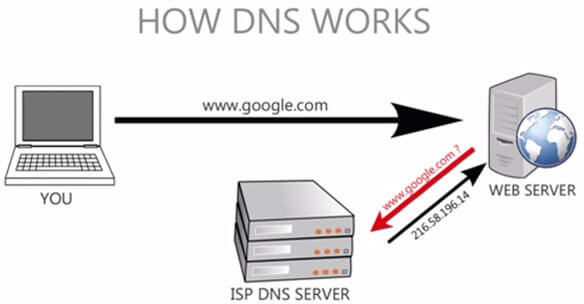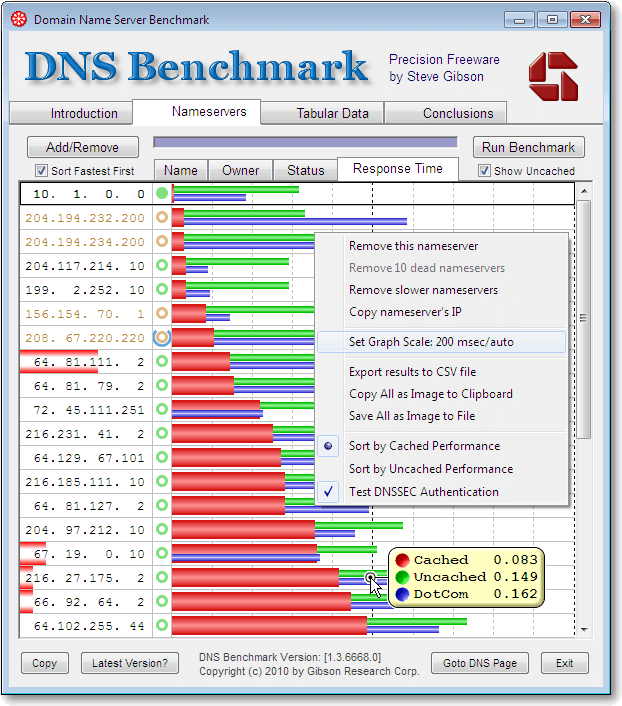When it comes to improving the gaming performance of your computer, you can upgrade your machine itself by installing new hardware such as a better video graphics card, RAM and solid state storage to boost its responsiveness and speed. You may also look into overclocking the PC’s graphics card.
There are simpler ways to eek out better performance from your gaming rig, though.
The easiest way to maximize your gaming experience is by updating the hardware drivers and DirectX, adjusting your computer’s power settings for higher performance, and even closing your PC’s background apps.
But here’s a common question that online players often ask; can “changing a DNS server” affect your gaming experience?

The function of DNS is to turn domain names into IP addresses, which the machine understands. However, DNS may slightly impact the two important factors in gaming: latency and bandwidth. By changing your DNS server to a good one, the benefit is faster internet access — this can slightly affect your gaming experience but is not significant while playing the game.
Depending on many factors, your ISP’s default DNS server may be slow and inefficient, which certainly will have an impact on how fast you are able to gain access to the internet for a better gaming experience. Apart from that, there are also a couple of ways in which changing your DNS server can affect your gaming experience. In the rest of this post, I’ll be further sharing with you everything that you need to know about the relationship between DNS and internet gaming.
Does DNS Affect Gaming?
A faster DNS server provides some free benefits to gamers:
- Faster pageloads due to low query times
- Phishing protection from malicious websites
- Optional Parental Control settings to block certain websites
- Servers closer to your physical location will improve your Internet browsing speed
- And importantly for gamers, the right DNS can reduce Ping, Packet loss and Jitter
Utilizing a good DNS server can benefit your Internet experience on a few levels, so I recommend at the least changing from your ISP’s default DNS.
Most DNS Servers are free, so what is there to lose?
Certainly, DNS can affect your gaming experience. However, it’s worth knowing that the effect won’t be as noticeable as a hardware upgrade. The only function of a DNS server is to assist in translating human-readable domain names into IP addresses linked to them — this enables the machine to understand the website you’re trying to visit.
In case you don’t know, there are games out there that make use of server names instead of using hard-coding for addresses. In this case, you need a very good and reliable DNS server to be able to gain faster access to the internet to enjoy the game. However, once the game loads, DNS will have very little or zero effect while playing the game.
Another way the choice of a good and reliable DNS server can affect your gaming experience is by helping you prevent website restrictions. DNS can affect gaming by blocking malicious websites — certainly, this will allow you to enjoy a smooth gaming experience. You can also trust some DNS servers for better security — this is also slightly important for your gaming experience.
Bottom line, DNS doesn’t have any effect on how you play your game. However, it sure has some effects on the gaming experience, such as being able to access the game quickly and blocking harmful websites to enjoy smooth and uninterrupted gaming.
Does DNS Affect Ping In Games?
To answer how DNS affects ping in gaming, we need to first understand what “ping in gaming” means and see if there’s a relationship between it and DNS. First, what exactly is “ping in gaming”?
“Ping” is primarily a measurement of your connection speed. Ping refers to the time it takes for a packet of data sent out to the server to be processed and sent back to your computer.
- In gaming, a ping of 150 ms or more is often considered very high and not good for gaming.
- A ping that falls between 50 ms and 100 ms, it’s mostly considered fairly okay for gaming.
- A great ping for gaming is usually very low — below 20 ms.
Of the factors that affect ping in gaming, one of them is the distance from the gaming system to the gaming server of your ISP. This is where DNS comes into play.
Can DNS reduce ping?
As earlier mentioned, one of the factors that affect ping in gaming is the distance from the gaming system to the gaming server. Since that’s the case, I’ll say it’s all up to your game — if it allows you to choose your preferred server from multiple options, then it is best to opt for a server closest to your gaming system so you can achieve low ping.
Again, it’s worth noting that this only has a slight effect on the ping.
Will Changing DNS Improve Gaming?
Changing your DNS settings can, to some extent, improve your gaming bandwidth — that is the download and upload speeds. A few people on various forums also indicated that it is possible for DNS to slightly affect latency in gaming — that’s the time (in ms) it takes for the ping to fetch information and return to the computer. However, no one has concluded that changing DNS is very effective to help improve the gaming experience.
That said, in case your game will allow you to change your server, using a reliable DNS server that’s located pretty close to your gaming system may improve your gaming experience. Here’s a good time to test different DNS servers on your router and see if there’s a significant improvement to your gaming experience.
Which DNS Is Best For Gaming?
1- Google Public DNS
When it comes to gaming, one of the best DNS servers is Google public DNS. First introduced in 2009 as part of the Giant search company’s “effort to make the web faster”, Google Public DNS offers better security (if not privacy) and a reliable service, which will help to improve your gaming experience.
You can access the DNS freely by making use of these servers; 8.8.8.8 (primary) and 8.8.4.4 (secondary).
2- OpenDNS
Just like Google DNS, OpenDNS is also very reliable when it comes to improving your gaming experience. The DNS comes as a freemium service, meaning you can either choose to use it freely or create an account to enjoy its additional features, such as whitelist and blacklist mode.
One of the benefits of this server is that it helps to restrict malicious websites, and allowing you to enjoy a smooth gaming experience. You can access the DNS by making use of these servers; 208.67.222.222 (primary) and 208.67.220.220 (secondary).
Other DNS servers
Here’s the list of some other DNS that are best for gaming (use a benchmarking tool to find the fastest server for your location):
- Comodo Secure DNS – 8.26.56.26 and 8.20.247.20
- AdGuard DNS – 176.103.130.130 and 176.103.130.132
- Cloudflare DNS – 1.1.1.1 and 1.0.0.1
- Quad9 DNS – 9.9.9.9 and 149.112.112.112
- Alternate DNS – 23.253.163.53 and 23.253.163.53
Find the Fastest Server: Free DNS Benchmarking
I recommend running Gibson Research Corporation’s free DNS Benchmark tool to find the fastest DNS server for your Windows machine.

Download DNS Benchmark, launch it (no installation required), select the “Nameservers” tab, and click “Run Benchmark”. It will benchmark the top 72 DNS servers.
